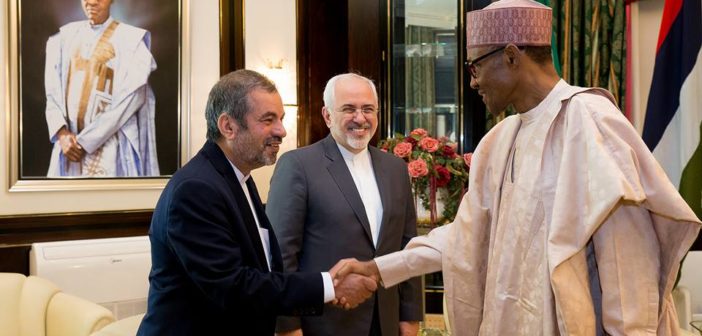President Muhammadu Buhari reiterated the commitment of his administration to ameliorate the challenges faced by the Nigerian economy within a short period by understudying the experiences of countries like Iran, who thrived in adversity.
The President disclosed this when he received Mohammad Javad Zarif, a Special Envoy from the President of Islamic Republic of Iran at the State House, Abuja, on Monday.
He said the Iranian economy remained an inspiration for Nigeria in the deployment of technology to harness and export gas, grow food for the populace and promote entrepreneurship in education. “The progress made by Iran within a short period of 30 years is really commendable. “Within the period, you have been able to harness gas flaring, and you are now exporting.
“You have recorded strides in security, manufacturing, agriculture and technology, you have also achieved a lot in nuclear research. “I must also congratulate you for successfully negotiating with America and the European countries on the development of your nuclear energy,’’ he said.
The president noted that Nigeria had all the potential for growing into a great economy through more inclusive planning, consistency in government policies and commitment to the realization of development targets. “In Nigeria, we are learning. We are learning the hard way through hardship, and we are learning very quickly on how to explore other sectors of the economy like gas, solid minerals and agriculture for growth.
“We are grateful for your support and cooperation in opening up the Nigerian economy for diversification,’’ Buhari told the envoy.
In his remark, the Iranian envoy, who is also the Minister of Foreign Affairs, said the Iranian government would support the ongoing restructuring of the Nigerian economy. “We are very keen to see a better and stronger relationship with Nigeria, which is the largest country in Africa and a major global player,’’ Zarif said.
According to Zarif, he is in Nigeria with a delegation of more than 70 members of the Iranian business community who had already started discussions in investing in sectors like banking, education, scholarship, agriculture, energy, tourism and technology development.




